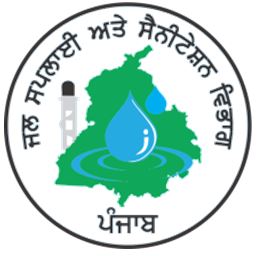| S.N. | Location of Lab | Name of Controlling Division |
| STATE LABS | | |
| 1 | State Mobile Lab- S.A.S Nagar | Executive Engineer, CCDU, S.A.S. Nagar |
| REGIONAL LABS | | |
| 1 | Regional Water Testing Lab, SAS Nagar | |
| 2 | Regional Water Testing Lab, Sangrur | |
| 3 | Regional Water Testing Lab, Moga | |
| 4 | Regional Water Testing Lab, Hoshiarpur | |
| 5 | Regional Water Testing Lab, Amritsar | |
| 6 | Regional Advance Water Testing Laboratory, Phase 2, SAS Nagar | |
| 7 | Regional Water Testing Lab (TWERU), Patiala | |
| DISTRICT LABS | | |
| 1 | District water testing Lab- Amritsar | Executive Engineer, WSS Divn. No. 2, Amritsar |
| 2 | District water testing Lab- Bathinda | Executive Engineer, WSS Divn. No. 3, Bathinda |
| 3 | District water testing Lab- Barnala | Executive Engineer, WSS Divn. , Barnala |
| 4 | District water testing Lab- Faridkot | Executive Engineer, WSS Divn. , Faridkot |
| 5 | District water testing Lab-Fatehgarh Sahib | Executive Engineer, WSS Divn. , Fatehgarh Sahib |
| 6 | District water testing Lab- Ferozpur | Executive Engineer, WSS Divn. No. 1, Ferozpur |
| 7 | District water testing Lab- Gurdaspur | Executive Engineer, WSS Divn. , Gurdaspur |
| 8 | District water testing Lab- Hoshiarpur | Executive Engineer, WSS Divn. No. 2, Hoshiarpur |
| 9 | District water testing Lab- Jalandhar | Executive Engineer, WSS Divn.No. 2 , Jalandhar |
| 10 | District water testing Lab- Kapurthala | Executive Engineer, WSS Divn. , Kapurthala |
| 11 | District water testing Lab- Ludhiana | Executive Engineer, WSS Divn. No. 1, Ludhiana |
| 12 | District water testing Lab- Mansa | Executive Engineer, WSS Divn., Mansa |
| 13 | District water testing Lab- Moga | Executive Engineer, WSS Divn. , Moga |
| 14 | District water testing Lab- Muktsar | Executive Engineer, WSS Divn. No. 1 , Muktsar |
| 15 | District water testing Lab- Nawanshahar | Executive Engineer, WSS Divn. , S.B.S. Nagar |
| 16 | District water testing Lab- Roopnagar | Executive Engineer, WSS Divn. No. 2, Ropar |
| 17 | District water testing Lab- S.A.S Nagar | Executive Engineer, WSS Divn. No. 3, S.A.S. Nagar |
| 18 | District water testing Lab- Sangrur | Executive Engineer, WSS Divn. , Sangrur |
| 19 | District water testing Lab- Taran Taran | Executive Engineer, WSS Divn. ,Taran Taran |
| BLOCK LABS | | |
| 1 | Block water testing Lab- Anandpur Sahib (Roopnagar Distt.) | Executive Engineer, WSS Divn. No. 1, Ropar |
| 2 | Block water testing Lab- Abohar (Ferozepur Distt.) | Executive Engineer, WSS Divn. , Abohar |
| 3 | Block water testing Lab- Batala | Executive Engineer, WSS Divn. ,Batala |
| 4 | Block water testing Lab- Fazilka (Ferozepur Distt.) | Executive Engineer, WSS Divn. ,Fazilka |
| 5 | Block water testing Lab-Garhshankar (Hoshiarpur Distt.) | Executive Engineer, WSS Divn. , Garhshankar |
| 6 | Block water testing Lab- Khanna (Ludhiana Distt.) | Executive Engineer, WSS Divn. ,Khanna |
| 7 | Block water testing Lab- Malout (Muktsar Distt.) | Executive Engineer, WSS Divn. , Malout |
| 8 | Block water testing Lab- Pathankot (Gurdaspur Distt.) | Executive Engineer, WSS Divn. , Pathankot |
| 9 | Block water testing Lab- Rajpura (Patiala Distt.) | Executive Engineer, WSS Divn., Rajpura |
| 10 | Block water testing Lab- Talwara (Hoshiarpur Distt.) | Executive Engineer, WSS Divn. , Talwara |


